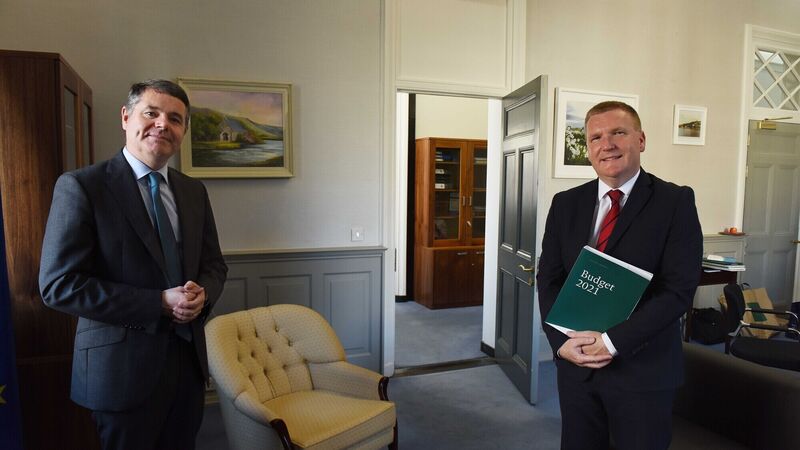More billions in spending may be needed to see out Covid-19 jobs crisis

Michael Mc Grath, Minister for Public Expenditure and Reform and Paschal Donohoe, Minister for Finance putting the finishing touches to budget 2021 at department offices in Dublin. File picture: Moya Nolan
It has taken some time to get there but spending on this scale to save the economy from mass unemployment is the right thing to do.
The Government is sanctioning expenditure to fight the second wave of the pandemic, shoring up the health budget, and marshalling the resources that will be required to help save businesses and a huge number of jobs next year.














